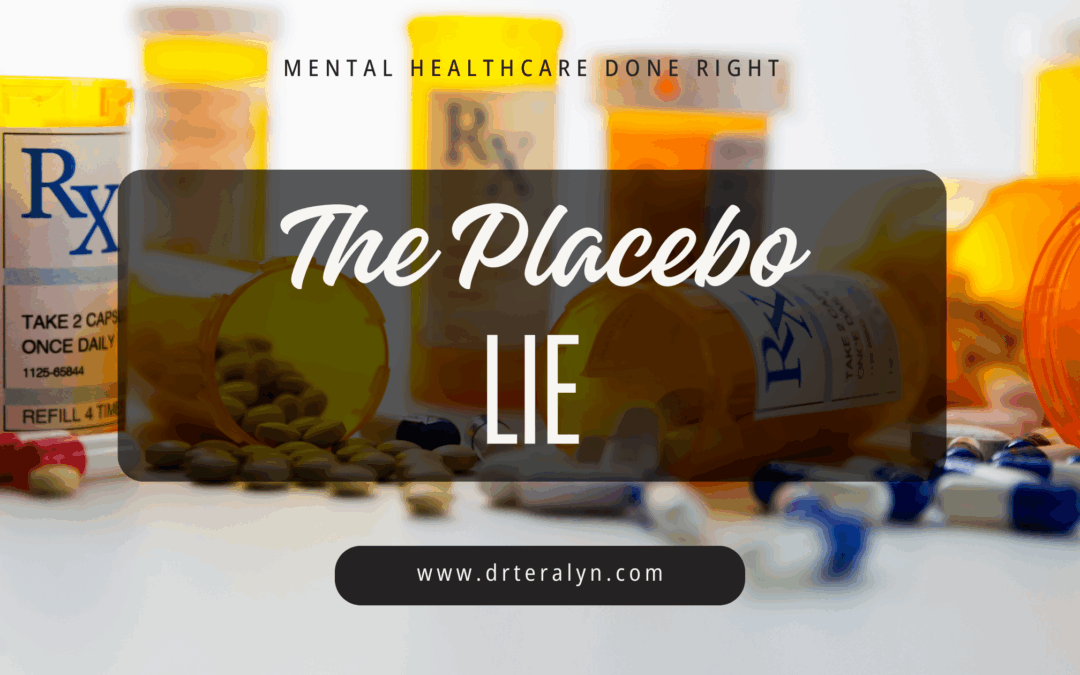We’ve all heard it: “Antidepressants are scientifically proven to be more effective than placebo.”
It’s a reassuring phrase. It evokes images of rigorous lab coats, impartial researchers, and controlled conditions where science triumphs over guesswork. But what if that story—the very foundation upon which millions of prescriptions are written—wasn’t just misleading, but deeply flawed?
Because here’s the uncomfortable truth: in most antidepressant drug trials, the “placebo” isn’t a placebo at all.
The Great Deception: Washouts and Withdrawal
Let’s unpack this. In order to test a new antidepressant, researchers typically recruit participants who are already taking psychiatric medication. These are often people who are deeply invested in finding relief from long-standing symptoms—and many have tried multiple medications before.
But before the trial starts, they undergo what’s called a “washout period.” This is a phase where all participants are taken off their current meds, regardless of how long they’ve been on them or how they feel about stopping. Sounds innocent enough—until you consider the very real consequences.
According to Moncrieff et al. (2013), the washout period can trigger intense withdrawal symptoms—anxiety, depression, insomnia, nausea, suicidal thoughts. It’s a pharmacological shake-up that can send a person spiraling. The irony? These withdrawal effects are often misclassified as a relapse of depression, even though they are a known consequence of stopping medication.
Then, after this destabilizing period, researchers randomize participants into two groups:
-
One group gets the study drug—often the same type of antidepressant they were just taken off of.
-
The other group gets a placebo—but now they’re still in withdrawal.
Guess who gets better faster?
Not because the drug is a miracle cure. But because one group is being chemically rescued from withdrawal, while the other is left to suffer through it. This isn’t measuring treatment effectiveness—it’s measuring relief from iatrogenic symptoms.
What Happens When We Call Withdrawal “Depression”?
This practice isn’t just misleading; it’s manipulative. By failing to distinguish between true depressive symptoms and withdrawal effects, these trials essentially inflate the drug’s apparent success. When someone in the placebo group deteriorates, it’s chalked up to “untreated depression.” When someone in the drug group feels better, it’s presented as “proof” of antidepressant efficacy.
In reality? It’s proof that withdrawal sucks.
Even more damning, Greenberg and Fisher (1995) showed how these trials use a single-blind placebo lead-in phase, where both groups are misled about what they’re receiving. But the body doesn’t lie. Patients often know when they’re off medication—because their withdrawal symptoms are unmistakable.
So here’s the burning question:
What does it mean for consumers when “placebo-controlled” trials aren’t truly testing a drug against nothing—but against active suffering?
Consumers Are Being Sold Confidence Based on Corrupted Data
As a consumer, you likely trust that the science is clean. That when a psychiatrist says, “This drug works better than placebo,” it’s based on fair testing. That it’s been judged against a neutral, inert comparison group.
But what if you were told instead: “This drug performed better than a group of people we yanked off their meds and left in withdrawal?”
Would you still feel the same about the 30 million antidepressant prescriptions handed out each year in the U.S. alone?
Would you still feel the same about your own experience?
Maybe your medication seemed to “work” only after the agony of stopping a previous one. Maybe you felt worse off meds and chalked it up to your broken brain. Maybe what you needed was healing—not another chemical life raft that simply pulled you out of the hell it helped create.
This Isn’t Science. It’s Strategy.
We are told that psychiatry is an evidence-based field. But if the very structure of drug trials is designed to show benefit—by comparing relief from withdrawal to ongoing withdrawal— then what we’re seeing is not medicine. It’s marketing.
And what’s worse, this deception shapes public policy, insurance coverage, clinical guidelines, and deeply personal life decisions.
Young people are told, “You have a chemical imbalance—take this.” Pregnant women are told, “It’s more dangerous to stop than to stay on it.” Those who try to taper off are told, “Your depression is back”—rather than recognizing the all-too-common reality of protracted withdrawal.
What This Means For You
If you or someone you love is considering psychiatric medication—or trying to come off it—this information matters. Because we’re not just talking about abstract data here. We’re talking about informed consent. About truth in science. About people who are hurting and being given half-truths dressed up as medical consensus.
Here’s what to take away:
-
Be skeptical of claims that a drug “beats placebo.” Ask: What did “placebo” actually mean in that study?
-
Recognize withdrawal for what it is. It’s not your broken brain—it may be your body trying to heal.
-
Demand honest science. We cannot continue to accept trials that pit suffering against relief and call it a cure.
Resources for Deeper Understanding:
It’s time we stop pretending these trials are fair.
They aren’t.
And the cost of believing they are?
Real people. Real lives. Real consequences.

